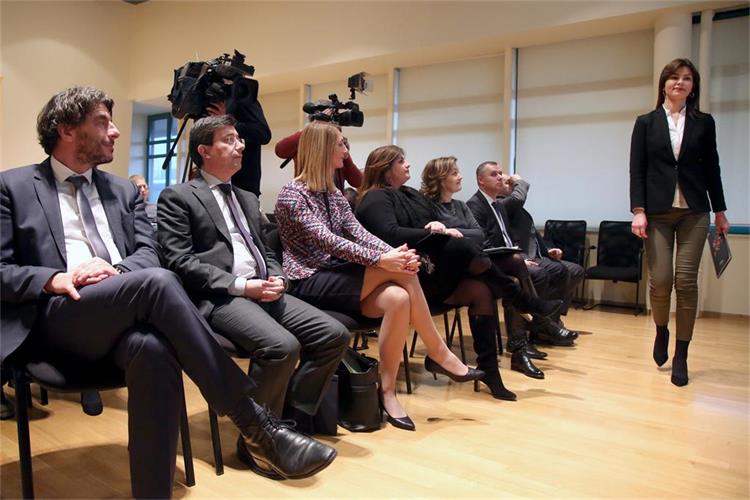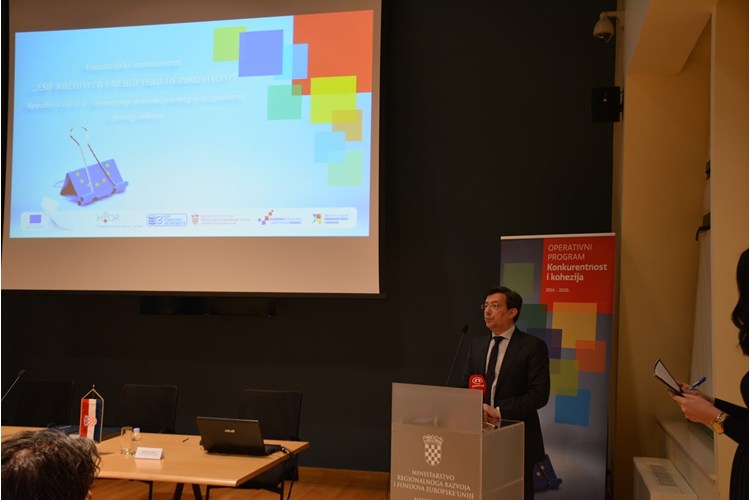- Published: 29.12.2017.
State Secretary Uhlir at Agreement signing ceremony regarding implementation of financial instrument 'ESIF loans for energy efficiency of public buildings'

By this agreement, the Ministry of Regional Development and European Union Funds, in its capacity of Managing authority of the Operational Programme 'Competitiveness and Cohesion 2014-2020' (OPCC), awards contributions and directly authorises HABOR for the implementation of the said financial instrument, which is co-financed with funds from European Structural and Investment Funds under the OPCC.
Final recipients of the financial instruments 'ESIF Loans for energy efficiency for public buildings' are beneficiaries from the public sector who will fulfil all the requirements under the Call 'Energy renovation and use of renewable energy sources in public sector buildings' launched by the Ministry of Construction and Physical Planning on 16 November 2017. This is the fourth call by the Ministry of Construction and Physical Planning for energy renovation of buildings and use of renewable energy sources in public sector buildings; the call is intended for applicants from the state administration, local and regional self-government, public institutions and organisations with public authorities.
Under this Call, for energy renovation of public sector buildings 380 million kuna have been provided from the European Regional Development Fund, and in case of major interest and high-quality projects and consequently absorption of funds, there is a possibility of allocation increase. The smallest grant amount that can be awarded for financing eligible costs of individual projects is 80 thousand kuna, and the highest grant amount is 40 million kuna. Submission of project proposals starts on 15 January 2018, with 31 December 2020 being the final time limit for project proposal submission, or up to absorption of available funds, respectively.
In addition to fulfilling the basic goal of the Call, by which annual reduction in energy consumption for heating/cooling by at least 50% is planned, additional positive effects shall be manifested in reduced fuel costs, with the possibility of using these financial savings for financing vital infrastructure investments at the level of regional and local self-government units. Furthermore, the working and dwelling conditions in renovated buildings shall be improved, contributing to the development of our cities. We anticipate that over the next four-year period more than 5 billion kuna will be invested in energy efficiency in the buildings sector, out of which 2.3 billion are European Union funds, giving additional impetus to the construction sector, in particular to small construction companies that shall be competitive in terms of energy renovation of buildings.
It should be mentioned that to date, through public calls for energy renovation of public buildings, the Ministry of Construction and Physical Planning, under the Operational Programme 'Competitiveness and Cohesion', has placed 99.5 billion euro of grants from the European Regional Development Fund.

